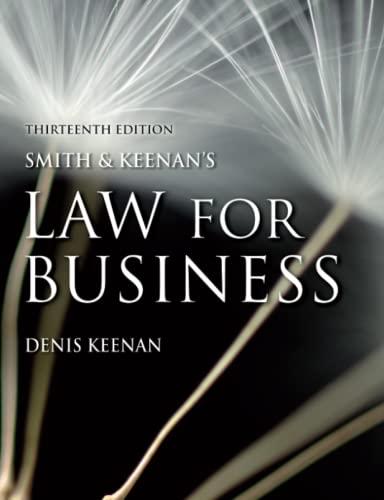Answered step by step
Verified Expert Solution
Question
1 Approved Answer
Under bankruptcy law, when a debt is discharged (excused) and Bankruptcy Court it does not have to be repaid. Unlike most forms of debt, however,
Under bankruptcy law, when a debt is discharged (excused) and Bankruptcy Court it does not have to be repaid. Unlike most forms of debt, however, student loans are typically non-dischargeable (can never be excused) and must be repaid. Recently a group of students has called for a change in the law to make student loans dischargeable. Imagine that the next election includes a ballot question to change the law to allow student loans to be discharged. When deciding how to vote, How would you analyze the ethical issues using the framework or steps for analyzing ethical dilemmas in the course materials? How do you evaluate the alternative actions using the framework or steps to analyze ethical dilemmas from the course? 1. Look at the bottom line 2. Do what everyone else is doing 3. Apply the ethical decision-making models 4. Think about what it is in your own self-interest
Step by Step Solution
There are 3 Steps involved in it
Step: 1

Get Instant Access to Expert-Tailored Solutions
See step-by-step solutions with expert insights and AI powered tools for academic success
Step: 2

Step: 3

Ace Your Homework with AI
Get the answers you need in no time with our AI-driven, step-by-step assistance
Get Started


